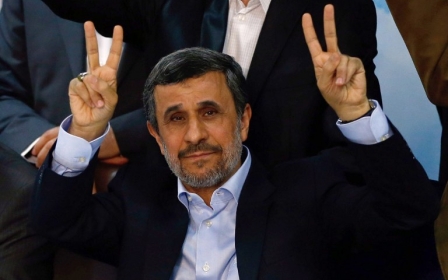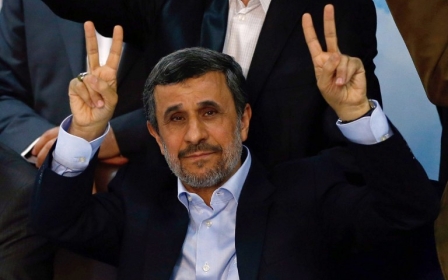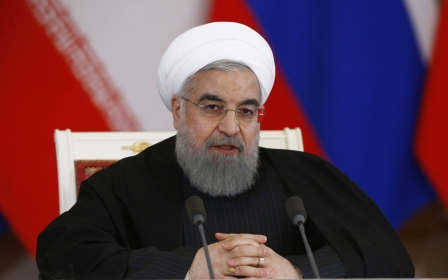Rouhani registers for Iranian presidential election
Iranian President Hassan Rouhani registered on Friday to run for a second four-year term, state television said, buoyed by Tehran's 2015 nuclear deal with world powers though facing a hardline conservative challenge over his economic record.
"Once again, I am here for Iran, for Islam, for freedom and for more stability in this country. I am urging all Iranians to vote for Iran and for Islam," Rouhani told reporters.
"From today, protecting the nuclear deal is one of my main plans in political and economic fields," he said, alluding to US President Donald Trump's dislike of the pact reached under his predecessor Barack Obama, and also to Iranian hardliners who opposed Rouhani's pursuit of detente with the West.
He won election by a landslide in 2013 on a platform of ending the Islamic Republic's diplomatic isolation and creating a freer society. But the oil-based economy's struggle to rebound since the lifting of sanctions as part of the nuclear accord could be exploited by Rouhani's hardline foes this time around.
Many Iranians have grown impatient with the slow rate of improvement in their economic fortunes since international financial and trade sanctions were lifted after Iran curbed its disputed nuclear activity under its deal with six world powers.
Influential Shia cleric Ebrahim Raisi, the custodian of a powerful organisation in charge of Iran’s holiest shrine, appears to be the leading hardline candidate. He also registered on Friday.
"The people's vote will determine the country’s fate... The economic status quo in Iran can improve," Raisi, an ally of Supreme Leader Ayatollah Ali Khamenei, told reporters.
Rouhani won in a single round with more than 50 percent of the vote in 2013 when no other candidate took more than 17 percent, but may face a tougher campaign this time if often-feuding hardliners can join forces against him.
But despite months of talks, hardliners have been unable to unite behind a single candidate and Khamenei appears to have not yet intervened to make them do so.
Within Iran's complex mix of clerical rulers and elected officials, Khamenei has the final say on all state matters.
But some prominent conservatives, including parliament speaker Ali Larijani, have thrown their weight behind Rouhani, believing Iran would benefit from a limited opening to the West and aware that this is what many younger voters want.
The five-day registration period for the 19 May election began on Tuesday and will be followed by a process of vetting of the hopefuls by a hardline watchdog body, the Guardian Council.
More than 1,010 people have signed up so far for the vote. Several former ministers and hardline former president Mahmoud Ahmadinejad are among those who have registered.
New MEE newsletter: Jerusalem Dispatch
Sign up to get the latest insights and analysis on Israel-Palestine, alongside Turkey Unpacked and other MEE newsletters
Middle East Eye delivers independent and unrivalled coverage and analysis of the Middle East, North Africa and beyond. To learn more about republishing this content and the associated fees, please fill out this form. More about MEE can be found here.




